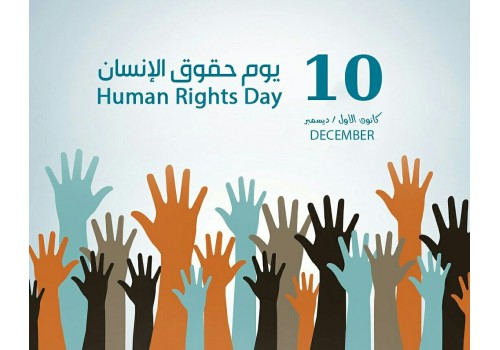Joint Statement (10 December 2020)
Many of the countries that have become democratic today, whose people enjoy full rights and freedoms, have taken the path of recognizing human rights after they experienced the ravages of the devastation caused by wars. After all this painful and great suffering inflicted on humanity, it has become necessary to draft a universal constitution for human rights. After relations between states were reorganized by the United Nations Charter, the Universal Declaration of Human Rights was drafted and was adopted by the United Nations General Assembly on 10 December 1948. The UN General Assembly believed that international peace and security can only be achieved through the recognition of the full rights of human beings. The humanitarian and international principles and rules stated in the Declaration were designed to protect and guarantee basic human rights for the guidance of all governments and states to improve and strengthen the state of human rights. That state can only be improved by recognizing the human dignity of all individuals and their equal/ inalienable rights, which are the basis of freedom, justice and peace in the world.
Bahrain joined the United Nations nearly half a century ago, and despite that, it did not pay serious attention to implement the principles of the Universal Declaration of Human Rights. It did not provide a significant improvement in this area, which made its ranking, among the countries violating public rights and freedoms. Oppression and marginalization of citizens dominated in Bahrain by restricting civil society, closing human rights and political organizations, resorting to arbitrary methods and revoking the nationality of hundreds of citizens. In the recent years, the government of Bahrain deprived thousands of citizens of their political rights, including electoral rights. Moreover, Bahrain continues to apply the death penalty, especially in cases with a political background. Although there are allegations and complaints of torture, perpetrators of torture crimes were not held accountable, which made the policy of impunity a widespread feature in Bahrain. Additionally, we documented many cases of criminal trials for citizens regarding cases related to demanding rights and freedoms, and their trials violated the minimum standards of fair trials.
On the occasion of Human Rights Day, we renew its call on the government of Bahrain to:
- Commit to the principles of the Universal Declaration of Human Rights, the international covenants and other human rights conventions and treaties, especially those that have been ratified;
- Harmonize its legislation with international agreements and implement it in a real and serious manner;
- Adopt the community partnership process in promoting the human rights situation and adopt the partnership approach in preparing, implementing, monitoring and evaluating national human rights plans.
Salam for Democracy and Human Rights
Bahrain Center for Human Rights


 العربية
العربية Français
Français Deutsch
Deutsch